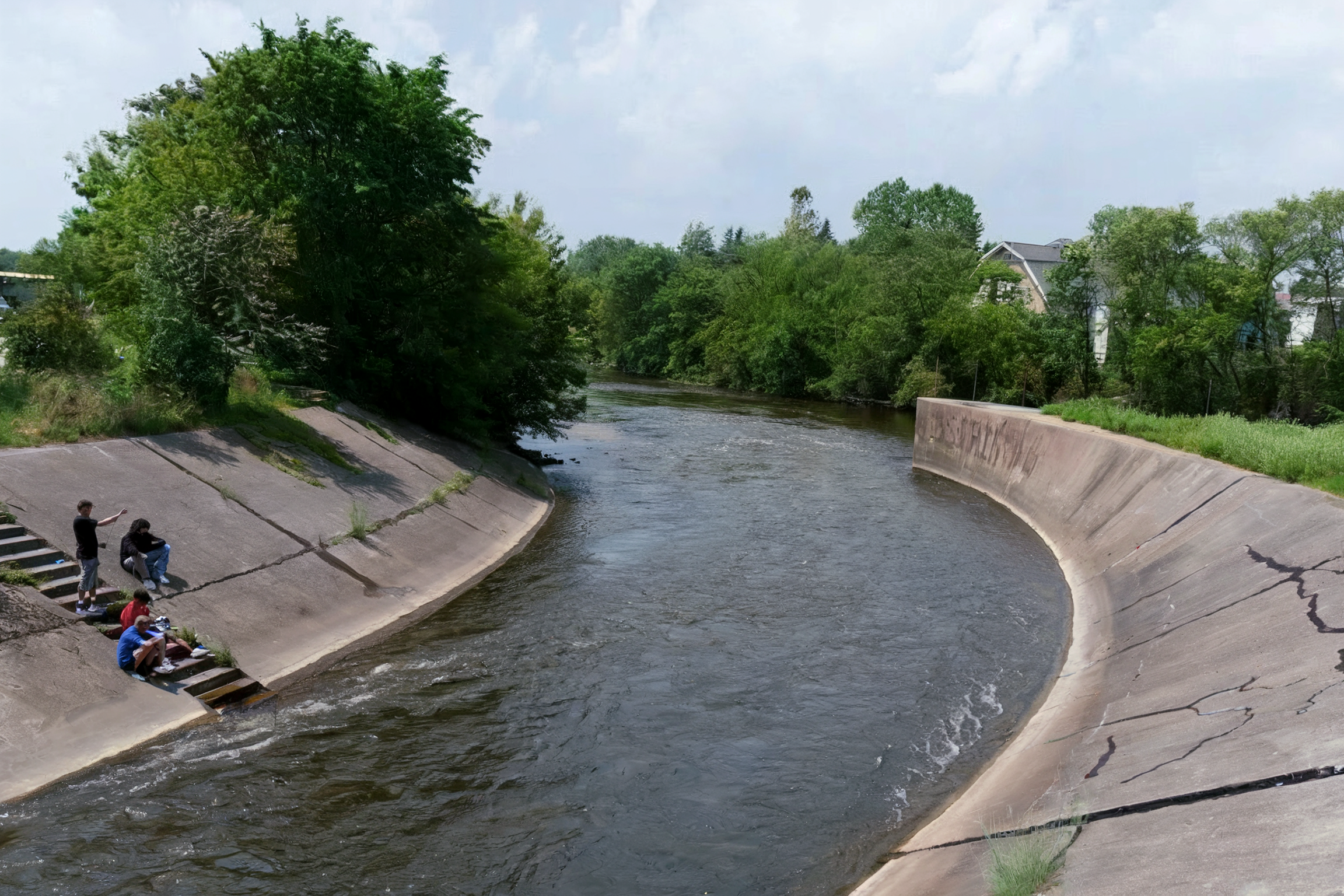Battle Creek Plans Kalamazoo River Restoration to Address Historical Displacement
The Cereal City Buzz
Archives
Battle Creek Plans Kalamazoo River Restoration to Address Historical Displacement
SIGN UP FOR OUR NEWSLETTER
Battle Creek Aims to Restore Kalamazoo River, Address Historical Displacement |
City plans to remove concrete channel, revitalize river corridor, and honor displaced communities |
Over six decades ago, Battle Creek constructed a concrete channel to control the Kalamazoo River's flow, aiming to protect downtown from flooding.
This project led to the displacement of a vibrant Black and working-class neighborhood known as The Bottoms.
Completed in 1961, the channel not only altered the river's natural course but also uprooted a community rich in culture and history.
Today, city officials are embarking on an ambitious plan to remove the aging concrete structure and restore the river to its natural state.
The initiative aims to enhance the river's ecological health, improve recreational opportunities, and stimulate economic development in downtown Battle Creek.
In April 2025, the city partnered with an engineering firm to develop a conceptual plan for the river's naturalization.
This plan includes removing the Monroe Street Dam, replacing the concrete channel with flood-tolerant vegetation, and creating a revitalized river corridor that serves as a community amenity.
City officials are actively seeking community input to ensure the project reflects the desires and needs of residents.
Many suggestions have been made from Whitewater parks to large greenspace areas.
Surveys and neighborhood meetings are being conducted to gather feedback and foster a sense of ownership among community members.
Despite the project's promising vision, some residents remain skeptical about its feasibility and potential impact.
Past urban renewal efforts have left scars, and there is cautious optimism about the city's commitment to avoiding previous mistakes.
Pastor Monique French, chair of the North Central Neighborhood Planning Council, expressed hope for progress, stating, "I do believe that economic development is good for the neighborhood. It's good for the economy as well as the neighborhood."
The project is part of a broader trend across Michigan and the nation to undo the effects of mid-20th-century urban renewal projects.
Similar efforts are underway in cities like Detroit, where plans are in place to transform the sunken Interstate 375 into a boulevard, and in Milwaukee, where river naturalization projects have led to ecological and economic revitalization.
As Battle Creek moves forward with its river restoration plans, the city aims to honor the history of displaced communities while creating a more inclusive and vibrant future.
By engaging residents and acknowledging past injustices, officials hope to build a project that benefits all members of the community. |

